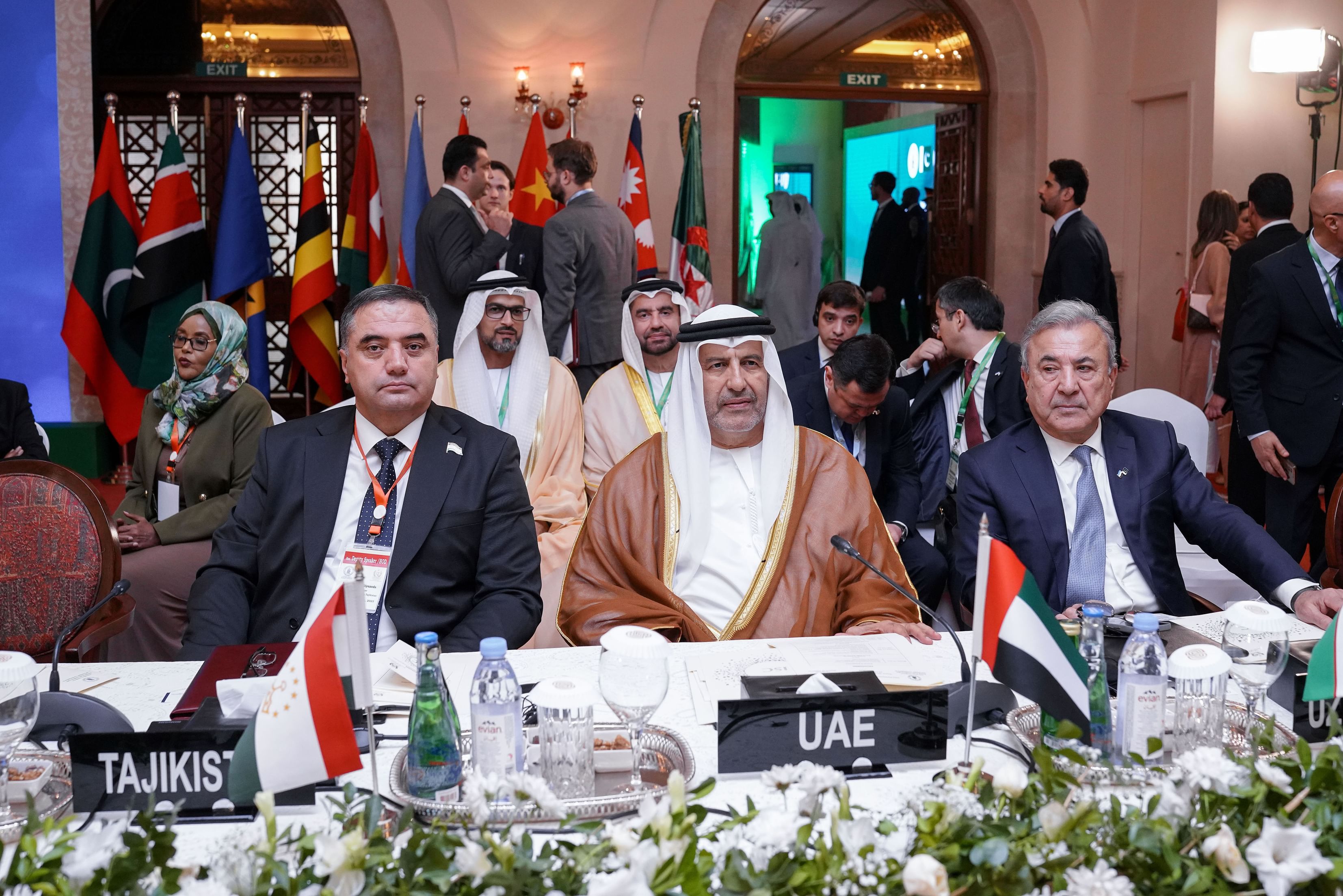- [UAE News]Hamdan bin Mohammed witnesses opening of 27th General Conference of International Council of Museums ...Read More
- [UAE News]Mansour bin Zayed chairs Mubadala Board Meeting ...Read More
- [UAE News]Federal National Council participates in Inter-Parliamentary Speakers’ Conference in Islamabad ...Read More
- [UAE News]Khaled bin Mohamed bin Zayed meets Executive Director of Tokyo National Museum ...Read More
- [UAE News]UAE President honours contributors to Life Endowment campaign for advancing sustainable healthcare model nationwide ...Read More
- [UAE News]Mansour bin Zayed receives Lebanese Ambassador ...Read More
- [UAE News]Khaled bin Mohamed bin Zayed chairs meeting of Executive Committee of ADNOC Board of Directors ...Read More
- [UAE News]Hamdan bin Mohammed reviews progress of infrastructure projects supporting roads network, future mobility ...Read More
- [UAE News]UAE takes part in G20 Health Ministers Meeting, Joint Finance and Health Ministers Meeting in South Africa ...Read More
- [UAE News]UAE President, Prime Minister of Montenegro discuss bilateral cooperation ...Read More

Federal National Council participates in Inter-Parliamentary Speakers’ Conference in Islamabad
- UAE News
- 12 Nov 2025
- 12:00 AM
Dr. Tariq Humaid Al Tayer, First Deputy Speaker of the Federal National Council (FNC), affirmed that the United Arab Emirates, under the leadership of President His Highness Sheikh Mohamed bin Zayed Al Nahyan, has adopted a vision based on political wisdom that balances sovereignty and development, identity and openness, and national ambition with regional and international roles in achieving security and prosperity. He stated this during his speech while heading the delegation of the FNC participating in the Inter-Parliamentary Speakers’ Conference (ISC), organised today by the Senate of the Islamic Republic of Pakistan in Islamabad, under the theme “Peace, Security, and Development,” with the participation of about 34 parliaments. Al Tayer noted that the UAE believes the world needs a new system of governance that guarantees the right to peaceful coexistence, justice in the distribution of resources, and equal opportunities for sustainable development for all. He emphasised that the UAE believes peace is an integrated system of values, policies, and practices that safeguard human dignity and provide equal opportunities for living, working, and innovating. He stressed that peace is the foundation of security and the cornerstone of development, and that its absence makes everything fragile, like an inscription in shifting sands that no one can hold onto. He said, “We have a shared responsibility to agree on a system of national and international legislation that outlines the features of joint action, particularly those that strengthen the bond between the citizen and the state, and between legislative frameworks and social realities, because peace, security, and development are the right of all.” He added, “Parliaments have a historic international responsibility to serve as platforms for cross-border dialogue, capable of shaping a rational and inclusive discourse that protects nations from division, builds bridges of intellectual and cultural communication among peoples, and keeps hope alive in a safe, stable, and sustainable world.” Al Tayer pointed out that global changes and realities affirm that all means of sustainable political, economic, social, and environmental stability, needed by nations in both the near and distant future, will not remain as they are today. This is due to three transformative forces that have become undeniable realities: globalisation, digitalisation, and artificial intelligence. He explained that any crisis, regardless of its political, security, economic, social, or cultural dimensions, can no longer exist in isolation or threaten one region without affecting others. Among the most prominent examples are the repercussions of climate change, wars that disrupt global supply chains, and threats to energy and food resources, as well as the security of maritime and air navigation. He concluded by stressing that addressing issues that pose present or future threats to the stability and economic prosperity of peoples requires collective action and a comprehensive approach to all related aspects. Combating terrorism, he said, demands joint efforts to eliminate its intellectual and financial sources and hold supporting states accountable, just as it requires joint efforts to promote a culture of coexistence, tolerance, and peace, which form the foundation of stability and progress for all nations.






 o
o

